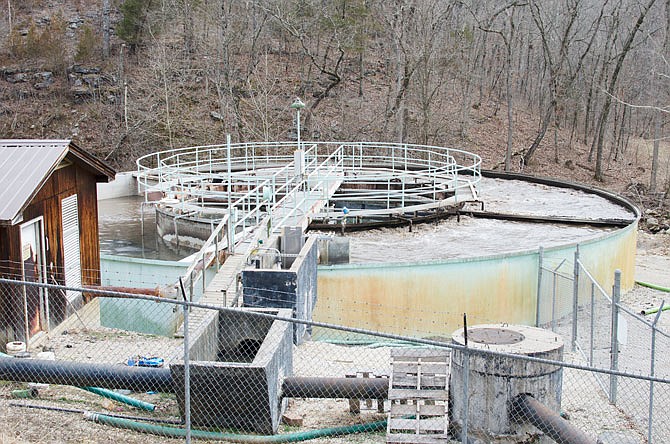HOLTS SUMMIT - Holts Summit's massive project to link its sewer system to Jefferson City is nearing the starting line.
"We've been working on it since what feels like forever," said Keith Edwards, Holts Summit sewer department superintendent. "We approved the bond for it back in 2011."
At Holt Summit's Dec. 10 Board of Aldermen meeting, the board voted to renew a $1 million bond that, back in 2013-14, helped the city pay for preliminary engineering and planning on the project.
"Once we get our USDA loan, the bulk of (that bond) will be reimbursed to the city," Edwards said. "We should be ready to close on a loan and get ready to bid."
This project, estimated to cost $6.75 million-$7 million, will involve laying new piping and creating pump stations to funnel all of Holts Summit's wastewater to Jefferson City for treatment.
The city was awarded a $500,000 Missouri Department of Natural Resources rural sewer grant and will cover the rest with a 30-year loan from the U.S. Department of Agriculture.
If all goes well, construction should begin this spring, Edwards said Dec. 20.
"I hate to give a timeline because we've thought we were close a bunch of different times and stuff comes up, but I think we're right there close to the starting line," he said. "Our engineers estimate 18 months for completion. That 6 miles of pressure lanes is going through streets and fields, and boring under Highway 54 isn't a real quick job either. Most of small collection systems will be done well before that."
Sewage from the west side of the city is already being sent to Jefferson City for treatment. A treatment facility built 47 years ago and purchased secondhand on the east side handles the rest of the wastewater produced by Holts Summit. The project will link the existing infrastructure on both sides of the city so all sewage flows to Jefferson City.
The new pump station is going in at the site of the old treatment facility, which will be shut down, though it will remain as a back-up for emergency situations.
In addition to laying 6-8 miles of pressured sewer line to transport sewage to Jefferson City, the city will also take the opportunity to connect about 102 houses within Holts Summit to the system.
The lengthy process of getting plans approved by government agencies and residents to sign off on easements has delayed the project's start until now.
"We've got pretty much everything we've asked for; we're just waiting for the state engineer to finish review on the plans," Edwards said.
According to the rate schedule for the agreement, Holts Summit will pay Jefferson City a flat fee per year that will raise over the course of the contract, starting at $215,000 and increasing to $550,000 by the end of the deal in 2051. There is also a renewal term to lengthen the agreement to 2056, which would raise the yearly fee to $625,000.
Though this project is a costly undertaking, Holts Summit officials believe it will save money in the long run, Edwards said.
"(Our current system is steel), and sewage and steel doesn't mix that well," he said. "We spend quite a bit of time on preventative maintenance and repairs. In the late 2000s, the city was exploring building our own treatment plant to treat all of our own sewage."
Jefferson City officials stepped in, offering to renegotiate the city's contract and start treating all of Holts Summit's sewage.
Laying pipe and constructing new pump stations might be pricey, but Edwards estimated it's still at least $1.5 million cheaper than building a new wastewater treatment plant.
The city also saves money by not having to maintain its own treatment plant or trying to keep up with shifting Environmental Protection Agency and DNR regulations. The additional lines will make it easier for the city to hook new construction or existing buildings into the sewage system.
Though the old treatment facility will be shutting down, there's still going to be plenty of work for Holts Summit's four-person sewer department.
"There won't be any less work; if anything, there'll be a little more," he said, pointing out the city will be going from 31 pump stations to at least 45. "We'll be able to do more on collection system maintenance."

